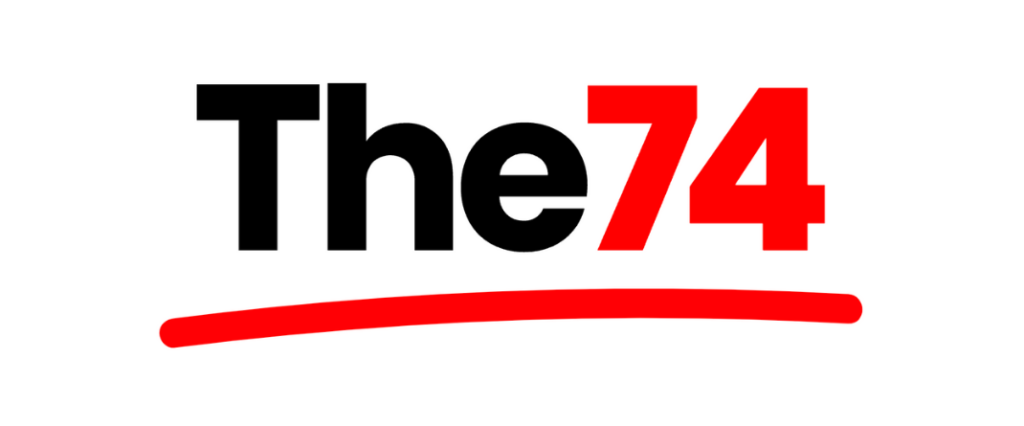Feb 2025
From Retributive to Restorative: An Alternative Approach to Justice in Schools
Topics
Projects
This paper evaluates the impact of Chicago Public Schools’ adoption of restorative practices on student discipline, finding decreased suspensions and arrests, particularly for Black students.
School districts historically approached conflict resolution from the perspective that suspending disruptive students was necessary to protect their classmates, even if this caused harm to perceived offenders. Restorative practices (RP) – focused on reparation, accountability, and shared ownership of disciplinary justice – are designed to address undesirable behavior without harming students. We study Chicago Public Schools’ adoption of RP and find that suspensions and arrests decreased, driven by effects for Black students. We find null effects on test-score value-added, ruling out meaningful average declines. We estimate a 15% decrease in out-of-school arrests, consistent with RP substantively changing student behavior.
Topics
Projects
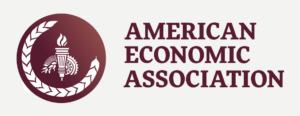
From Retributive to Restorative: An Alternative Approach to Justice in Schools
This paper evaluates the impact of Chicago Public Schools’ adoption of restorative practices on student behavior, finding decreased suspensions and arrests, particularly for Black students.
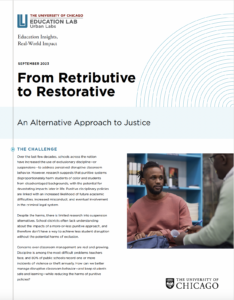
From Retributive to Restorative: An Alternative Approach to Justice in Schools
This research brief details the findings from the Education Lab’s study of the effect of restorative practices in Chicago Public Schools.
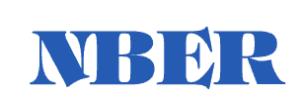
NBER working paper – From Retributive to Restorative: An Alternative Approach to Justice
This paper evaluates the effect of restorative practices implemented in Chicago high schools, finding decreases and student arrests in and outside of school and for violent and non-violent offenses.

Becker Friedman Institute Working Paper- From Retributive to Restorative: An Alternative Approach to Justice
Read the working paper on the results of the Education Lab’s findings from a study of the implementation of restorative practices in Chicago Public Schools.
Latest Updates
A Promising Start for Personalized Learning in Miami-Dade
Griffin Catalyst highlights its three-year gift to the Education Lab to bring an innovative, high-dosage, math tutoring initiative to middle schools in Miami-Dade County to support and accelerate student learning in the wake of the COVID-19 pandemic. Initial results from the program are promising, suggesting that this approach can help tackle learning loss and enable students to catch up to grade level.
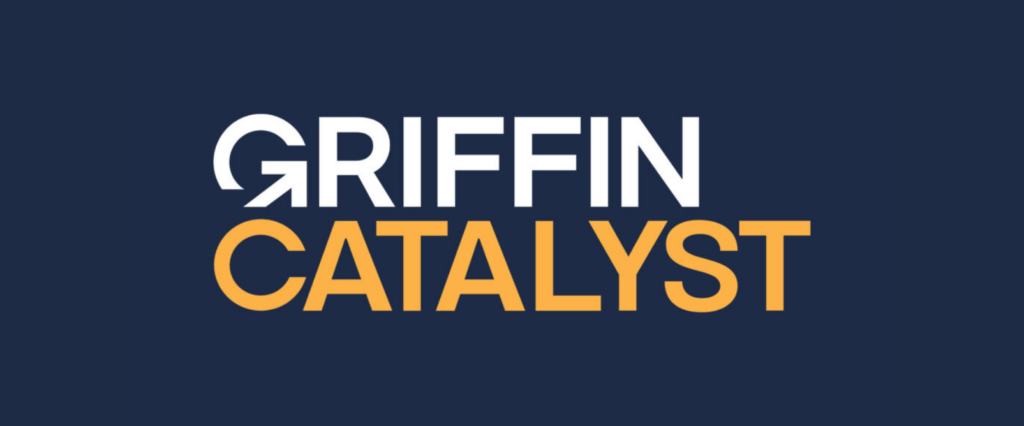
Why tutoring is a logistics problem worth solving
The National Student Support Accelerator’s (NSSA) Susanna Loeb and the Education Lab’s Monica Bhatt highlight the ways districts can stay the course on using high-dosage tutoring as a research-backed lever for strengthening teaching and learning.

Months After Deep Cuts, Education Researchers See Reason for Cautious Optimism
In a recent piece from The 74 Media’s Greg Toppo, Education Lab Senior Research Director Monica Bhatt discusses why continued investment in education R&D matters: To drive better outcomes for students and to strengthen America’s global competitiveness.
